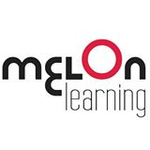Description

APPeL

Melon LMS
Comprehensive Overview: APPeL vs Melon LMS
As of my last update, APPeL and Melon LMS are both Learning Management Systems (LMS) that cater to the educational technology market. Here's a comprehensive overview focusing on their primary functions, target markets, market share, user base, and key differentiating factors:
a) Primary Functions and Target Markets
APPeL:
-
Primary Functions:
- APPeL stands for Advanced Platform for Personalized e-Learning. It focuses on providing a personalized learning experience for users by incorporating adaptive learning technologies.
- The platform offers course management, content curation, student tracking, and analytics to tailor learning pathways for each individual.
- It supports multimedia integration, online assessments, and real-time feedback mechanisms.
-
Target Markets:
- APPeL primarily targets educational institutions such as universities, K-12 schools, and corporate training departments.
- The platform is well-suited for organizations looking to implement a personalized learning approach to improve student engagement and outcomes.
Melon LMS:
-
Primary Functions:
- Melon LMS is known for its user-friendly interface and strong emphasis on workforce development and corporate training.
- It offers features such as course creation and management, employee onboarding, compliance tracking, and performance assessments.
- Melon LMS also supports integration with third-party systems and provides analytics tools to evaluate training effectiveness.
-
Target Markets:
- The core market for Melon LMS includes medium to large enterprises across various industries such as healthcare, finance, and retail.
- It caters to organizations that require scalable and robust solutions for training and development programs.
b) Market Share and User Base
APPeL:
- In the LMS market, APPeL might have a smaller market share compared to more established platforms, primarily because it often focuses on specific needs like adaptive and personalized learning.
- Its user base predominantly consists of educational institutions seeking innovative learning solutions.
Melon LMS:
- Melon LMS has a more pronounced presence in the corporate training sector. The platform is often chosen by organizations looking for reliable and scalable solutions for workforce development.
- Its user base is larger in the corporate segment compared to APPeL, but its market share in the overall LMS market varies depending on the adoption rate of its targeted functionalities.
c) Key Differentiating Factors
-
Personalization vs. Scalability:
- APPeL differentiates itself by offering advanced personalization features aimed at enhancing individual learning experiences.
- Melon LMS stands out for its scalability and ease of use in corporate settings, making it a preferred choice for large organizations.
-
Market Focus:
- APPeL's strength lies in its focus on educational institutions looking for innovative ways to deliver personalized education.
- Melon LMS focuses more on businesses seeking comprehensive solutions for training and development, with features that support HR functions and compliance training.
-
Integration and Adaptability:
- APPeL offers adaptive learning paths through advanced analytics and AI-driven recommendations, appealing to institutions that prioritize student engagement and success metrics.
- Melon LMS provides integration capabilities with enterprise systems (like ERP and CRM platforms), which is crucial for businesses aiming for a seamless experience across their IT infrastructure.
Overall, while both APPeL and Melon LMS offer robust learning management solutions, their appeal and strengths lie in different areas and serve distinct market needs. Each platform's choice will largely depend on the specific requirements of the institution or organization considering it.
Contact Info

Year founded :
2002
Not Available
Not Available
Italy
Not Available

Year founded :
Not Available
Not Available
Not Available
Not Available
Not Available
Feature Similarity Breakdown: APPeL, Melon LMS
Sure, let's break down the feature similarities and differences between APPeL and Melon LMS, as requested:
a) Core Features in Common:
-
Course Management: Both platforms offer comprehensive course management functionalities. This includes creating and organizing courses, setting up modules, and defining learning paths or curricula.
-
Content Delivery: They provide tools for uploading and delivering various types of content such as videos, documents, quizzes, and multimedia presentations.
-
Assessment and Evaluation: Both APPeL and Melon LMS feature assessment tools like quizzes, assignments, and tests, along with grading and feedback options.
-
Communication Tools: These platforms support interaction between instructors and learners through messaging, discussion boards, or forums.
-
Tracking and Reporting: Standard analytics are offered to track learner progress, completion rates, and other key performance indicators.
-
User Management: Both systems allow administrators to manage users, roles, and permissions effectively.
b) User Interfaces Comparison:
-
APPeL: Typically designed with an emphasis on simplicity and ease of use. It might employ a more streamlined design with intuitive navigation aimed at reducing the learning curve for new users.
-
Melon LMS: Often incorporates customizable dashboards, which can provide a more personalized user experience tailored to different roles (students, instructors, admins). It may feature a more visually engaging interface with modern design elements.
While both provide straightforward navigation, Melon LMS might offer greater customization options, while APPeL could focus on minimalistic and user-friendly design to enhance accessibility.
c) Unique Features:
-
APPeL:
- May include innovative pedagogical tools designed specifically for the educational strategies of certain institutions or educators.
- Possible integration with other institution-specific systems, offering a more seamless data exchange process.
-
Melon LMS:
- Could offer enhanced AI-based analytics or adaptive learning systems that adjust content delivery according to individual learner needs.
- Advanced integration capabilities with third-party applications, allowing institutions to connect broader tech ecosystems easily.
These unique features often depend on how each platform is positioned in the market and the specific needs they aim to address for their users. Therefore, while they have many commonalities, the specific contexts they serve can also highlight marked differences in features and focus.
Features

Integration Capabilities
User-Friendly Interface
Collaboration Tools
Security and Compliance
Customer Support

Comprehensive Course Management
Support and Resources
User-Friendly Interface
Performance Tracking
Engagement and Collaboration
Best Fit Use Cases: APPeL, Melon LMS
APPeL and Melon LMS cater to different needs and scenarios in the realm of learning management and educational technology. Here’s a breakdown of their best fit use cases:
APPeL
a) Best Fit for APPeL:
-
Educational Institutions:
- Universities and colleges that require a platform for blended learning and online course management. APPeL is often designed to support a wide array of academic programs, facilitating course creation, administration, and tracking.
-
Professional Training Providers:
- Companies or organizations that offer professional certifications or workshops, needing a robust platform to handle content delivery, assessment, and tracking participant progress.
-
Non-Profit Organizations:
- NGOs focused on educational programs or community training initiatives. APPeL can provide a structured environment to deliver and manage learning programs for diverse audiences.
-
Research Projects:
- Institutions or organizations involved in educational research may use APPeL to track and analyze participant data, engagement metrics, and learning outcomes, complementing their research methodologies.
Industry Vertical Fit:
- Higher Education: Supports diverse curricula and academic needs.
- Vocational Training: Offers functional capabilities for certification and skill development programs.
- Nonprofits/Educational NGOs: Provides tools for structured learning and development programs.
Melon LMS
b) Best Scenarios for Melon LMS:
-
Corporate Training:
- Companies looking to train employees efficiently on a local or global scale, focusing on compliance, onboarding, skills development, and continuous professional development.
-
Small to Medium-Sized Enterprises (SMEs):
- Businesses that need an easy-to-implement and scalable learning solution that can grow with them, providing flexibility in content delivery and training modules.
-
Remote Workforce Management:
- Organizations managing remote teams, looking for ways to ensure consistent training and development opportunities despite geographical challenges.
-
Freelancers and Consultants:
- Professionals providing niche training services or workshops, utilizing Melon LMS for its ease of use and content management capabilities.
Industry Vertical Fit:
- Corporate Sector: Ideal for employee training, upskilling, and compliance education.
- Tech Startups: Provides scalable solutions suitable for fast-paced growth environments.
- Healthcare: Suitable for compliance training and continuous medical education.
- Retail and Service Industries: Supports consistent training across distributed locations and varied roles.
Industry Vertical and Company Size Considerations
-
APPeL typically caters to larger or more structured environments like educational institutions and large-scale training providers, where comprehensive course management and tracking is key. It suits entities that require a breadth of features to manage complex learning environments.
-
Melon LMS, on the other hand, is often geared towards flexible and scalable solutions that fit different company sizes, particularly benefiting SMEs and corporations with specific training needs. It excels in industries that prioritize ease of use, scalability, and the ability to deliver targeted learning experiences with minimal administrative overhead.
In conclusion, the choice between APPeL and Melon LMS largely depends on the specific needs of the organization, the scale of operation, and the industry vertical in which they operate. APPeL is preferable for structured and institutional educational needs, while Melon LMS caters to broader corporate training requirements and is more suitable for dynamic, growth-oriented environments.
Pricing

Pricing Not Available

Pricing Not Available
Metrics History
Metrics History
Comparing undefined across companies
Conclusion & Final Verdict: APPeL vs Melon LMS
Conclusion and Final Verdict: APPeL vs. Melon LMS
In evaluating APPeL and Melon LMS, both platforms offer unique strengths and weaknesses. The ultimate choice depends on the specific needs and requirements of the user or organization involved. Below, we offer a detailed comparison, pros and cons, and recommendations to guide users in making an informed decision.
a) Considering all factors, which product offers the best overall value?
Overall Value Verdict: Melon LMS
Melon LMS generally offers the best overall value due to its robust set of features, excellent customization capabilities, and strong customer support. While the cost may be slightly higher, the additional functionalities and user experience justify the investment for most organizations.
b) Pros and Cons of Choosing Each Product
APPeL:
- Pros:
- User-Friendly Interface: APPeL is known for its intuitive and straightforward interface, which is particularly beneficial for users who are not tech-savvy.
- Affordability: Often more cost-effective, making it a suitable choice for smaller organizations or those with tighter budgets.
- Integration Capabilities: Seamlessly integrates with a variety of external tools and systems, enhancing its flexibility.
- Cons:
- Limited Advanced Features: It may lack some of the advanced features and customization options available in more comprehensive LMS platforms.
- Scalability Concerns: May not scale as efficiently for very large organizations or evolving e-learning needs.
- Support Limitations: Support options might not be as extensive or responsive as those offered by competitors.
Melon LMS:
-
Pros:
- Comprehensive Feature Set: Offers a wide range of features, including analytics, reporting tools, and content customization, catering to diverse e-learning needs.
- Customization and Branding: Allows for a high degree of customization, enabling organizations to align the LMS closely with their branding.
- Robust Support and Community: Provides robust customer support and an active user community for troubleshooting and sharing best practices.
-
Cons:
- Higher Cost: Generally priced higher, which might not be feasible for very small organizations or those with limited budgets.
- Steep Learning Curve: The extensive feature set can lead to a steeper learning curve for new users, requiring more time for initial setup and training.
- Complexity: Might be too complex for users with basic e-learning needs.
c) Specific Recommendations for Users Trying to Decide Between APPeL vs. Melon LMS
- Evaluate Your Needs: Assess the size of your organization, user technical expertise, budget constraints, and specific LMS requirements. Small to medium-sized organizations with limited budgets might find APPeL an appealing choice. In contrast, those seeking extensive features and customization should consider Melon LMS.
- Consider Long-term Scalability: If you anticipate growth or evolving e-learning needs, Melon LMS may provide the scalability required to meet future demands.
- Trial and Feedback: Take advantage of free trials (if available) to explore both platforms' usability and features. Gather feedback from potential users within your organization to understand which LMS resonates best with them.
- Customer Support and Training: Consider the level of customer support you may need and each platform's resources or training materials, as these can significantly affect the user experience.
- Integration Needs: If your organization heavily relies on integration with other tools and platforms, ensure your chosen LMS can accommodate these requirements effectively.
Ultimately, the final decision should align with the organization's immediate and future e-learning goals, budget, and user preferences.
Add to compare
Add similar companies



